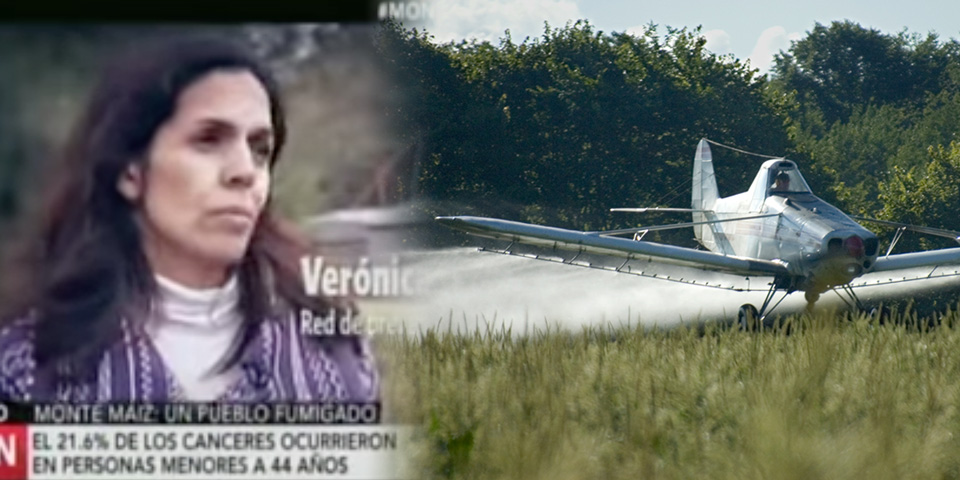
Council unanimously approves ordinance that sets limits on the spraying of pesticides and bans the storage of agrochemicals in the town of Monte Maiz
The Legislative Council of the town of Monte Maiz in Cordoba, Argentina, has unanimously approved the first six points of an ordinance that sets limits on the spraying of pesticides and bans the storage of agrochemicals in the town.
The town is in a region that grows GM herbicide-tolerant soy and maize, which is sprayed liberally with Roundup and other herbicides.
City Council President Ignacio Silva said, ”Although legal sanctions have not yet been completed, what happened yesterday was a crucial step because we voted through these six points unanimously. This shows that awareness has been generated in all the people and that all sectors are unified in the determination to improve people’s lives in Monte Maiz.”
Silva explained that among the proposals approved was one that set buffer zones, within which spraying is banned. From now on, class 3 and 4 chemicals (less toxic) cannot be sprayed within 500 meters of houses, and a buffer of trees must be planted. The most toxic chemicals cannot be sprayed within a thousand meters of houses. Finally, "Mosquito" spraying machines cannot be used within 2000 meters.
Monte Maiz is a town of 8000 inhabitants located in the southeast of the province of Cordoba. In 2005, the then director of the local hospital, Hugo Betiol, announced the appearance of a large number of patients with cancer and lupus and children with malformations, a situation that gave rise to a neighborhood organization called the Network for the Protection of Health and Environment of Monte Maiz.
In 2014, supported by Mayor Luis Trotte, residents formed a group called the Physicians’ Network of Sprayed Peoples. Finally, an interdisciplinary team from the Universities of Córdoba and La Plata conducted a health survey of 594 people, in addition to taking samples of soil and water.
One of the most significant findings obtained from the survey was that while the expectation of new cancer cases in Monte Maiz was 11 per year, in 2014 the town had 35 cases – three times as many.
The town also had five times the national average of spontaneous abortions - and 50 percent of children between 6 and 7 years had respiratory problems, when at that age the average is 10 percent.
"The passage of this ordinance is important for residents. The have spent years fighting on this issue and months working on the ordinance. We've spent thousands of hours, much effort, and significant amounts of money to live in a healthier place,” said Veronica Llopis, a member of the Network for the Protection of Health and Environment of Monte Maiz.
"Of course, now that the ordinance is enacted, we will have to work much harder to implement the controls. Legal sanctions are not the end but the beginning. But the ordinance will be a very valuable tool to help us in our fight," said Llopis.
Dr Vazquez Medardo Avila, the doctor from the University of Cordoba who led the survey, said: "This ordinance is a victory for human rights, life, and health over the interests of agribusiness.”
"All the researchers are very pleased: we made a diagnosis and gave a recommendation. The people believed in us and in the residents who had been struggling for this change," said the pediatrician, who received threats and harassment after carrying out his research.
Report/translation by Claire Robinson of GMWatch. Image shows TV interview with Veronica Llopis, a member of the Network for the Protection of Health and Environment of Monte Maiz.
Sources: Pagina12 (Spanish): http://www.pagina12.com.ar/diario/ultimas/20-276653-2015-07-08.html
(English): http://gmwatch.org/index.php/news/archive/2015-articles/16145